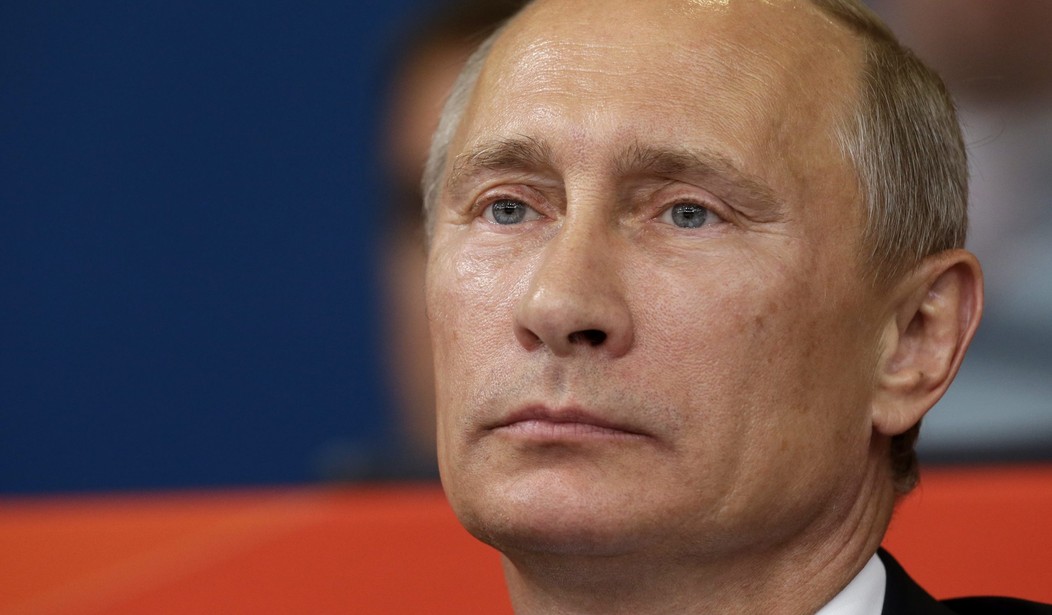A federal court on Tuesday finally unsealed Fusion GPS’ bank records, revealing new details about payments made to the opposition research firm behind the unverified Steele dossier. The docs also confirm that Fusion GPS made payments to three journalists known to have reported on Russia issues.
The House Permanent Select Committee on Intelligence has been fighting in court for weeks to access documents that show payments to the journalists between June 2016 and February 2017.
Judge Richard Leon, a Bush appointee, ruled last week in the U.S. District Court in Washington, D.C., that the records be unsealed.
The Daily Caller reported that the documents list 112 transactions involving Fusion GPS — most of which were redacted.
The records show that two law firms — Perkins Coie and BakerHostetler — paid Fusion GPS more than $1.5 million last year for services on separate Russia-related projects. Perkins Coie represented the Clinton campaign and DNC’s anti-Trump research efforts, while BakerHostetler represented Prevezon Holdings and its owner, Russian businessman Denis Katsyv, who were trying to get the Magnitsky Act repealed.
The records show that Perkins Coie paid Fusion a total of $1,024,408 between May 24, 2016, and Dec. 28, 2016.
According to the DCNF, “the largest payment was made just before the election. Perkins Coie made a $365,275 payment to Fusion GPS on Oct. 28, 2016, according to the records.”
The transaction list does not show payments that Fusion made to Christopher Steele, the former British spy who wrote the dossier. The firm reportedly paid Steele a total of $168,000 for his work, which lasted from June 2016 until the election.
The records show that Fusion was also paid $523,651 by the law firm BakerHostetler between March 7, 2016 and Oct. 31, 2016.
Fusion worked for BakerHostetler to investigate Bill Browder, a London-based banker who helped push through the Magnitsky Act, a sanctions law vehemently opposed by the Kremlin.
Glenn Simpson, a former Wall Street Journal reporter and one of Fusion GPS’ founders, reportedly prepared the memo for the anti-Browder project.
According to Fox News, he met with Russian lawyer Natalia Veselnitskaya before and after her meeting with Donald Trump Jr., Jared Kushner, and Paul Manafort in June of 2016.
However, Simpson told the House Intelligence Committee earlier this month that he did not know of Veselnitskaya’s Trump Tower meeting until reports of it appeared in the media.
The unsealed documents also provide details about payments Fusion GPS made to three journalists between June 2016 and February 2017.
The committee sought records related to “five Fusion payments to research and Russia expert [name redacted], and production of three additional payments,” as well as records “related to Fusion’s payments to journalists who have reported on Russia issues relevant to its investigation,” according to the documents.
House Republicans have been trying to find out if Fusion GPS used the dossier — which according to Rep. Trey Gowdy “looked like the National Enquirer prepared it” — to feed anti-Trump stories to the press during and after the presidential campaign.
According to the Washington Examiner, the House Intelligence Committee said in a court filing that “the three journalists who were paid by Fusion GPS are known to have reported on ‘Russia issues relevant to [the committee’s] investigation.'”
But the recipients’ names, the amounts, and purposes of those payments were either redacted from the documents that Fusion GPS filed to the U.S. District Court for the District of Columbia or were not disclosed.
The unsealed filings show that Fusion fought hard against releasing records related to these payments, and even asked the court to issue a restraining order against the House committee for seeking the documents.
Fusion GPS partner Peter Fritsch argued in a Nov. 3 declaration that “transactions between Fusion GPS and certain journalists…are not pertinent to work related to Russia or Donald Trump.”
And in an email to the Intel Committee’s legal team on Nov. 2, Simpson’s attorney, Joshua Levy, argued that “records related to payments to the journalists and ‘individuals’ are protected by the First Amendment and confidentiality, and they are not pertinent.”
Levy last week admitted that Steele and Simpson had briefed reporters on the unverified dossier last year, but insisted that neither Simpson nor Fusion GPS paid members of the media to publish stories of any kind.
Fusion instead argued that some payments went to reporters to help the company with research.
Simpson reportedly told House investigators during his recent closed-door testimony that he leaked details from the dirty dossier to reporters right before the 2016 election because he was “upset” that then-FBI director James Comey had reopened the Clinton email case.
According to Fox News, he also told members of the House Intelligence Committee to look for “a wide-ranging, multi-faceted Russian conspiracy that included the infiltration of the NRA.”
An NRA spokesman told Fox News that “they had no knowledge of any Russian infiltration.”









Join the conversation as a VIP Member